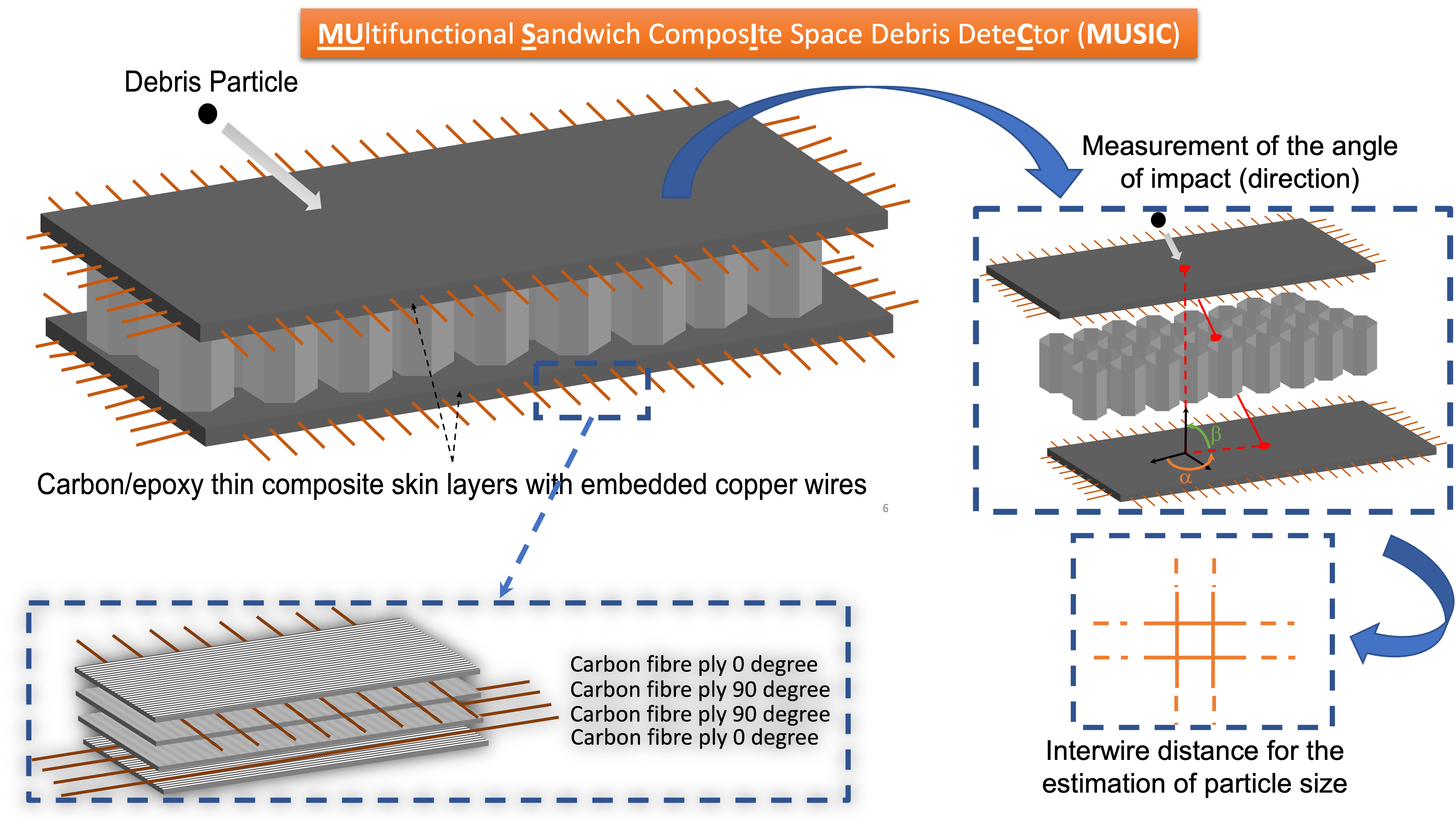Duration: 18 months
Space debris particles with dimensions ranging between ~100 microns and 10 mm are not trackable with existing monitoring systems and have sufficient energy to harm Earth satellites during collision events and generate further debris. An innovative strategy to prevent future impacts of satellites with small debris objects embraces the development of particle detectors mounted onto orbiting satellites. These detectors can provide online warning of the debris impact occurrence, thus preventing the risk of failure and timely triggering mitigation actions (e.g., informing nearby satellites to transfer to debris-free orbits or modifying the attitude to reduce the cross-sectional area facing the debris flux). They can also contribute to produce accurate environmental classification of orbital debris population, thus enhancing current European Space Surveillance Networks. The MUSIC project will take this strategy to the next level by developing a new ground-breaking multifunctional sandwich composite panel that combines, for the first time, high load-bearing properties and debris detection capabilities. It consists of top and bottom thin carbon/epoxy composite skin layers surrounding the honeycomb core, which will be both instrumented with a resistive grid of copper wires to enable real-time, continuous impact monitoring via measured changes of the electrical resistance. Such material/geometrical configuration of the sandwich panel can ensure lightweight characteristics to the spacecraft whilst also enabling measurements of the trajectory, size and velocity of debris particles, which are not achievable with any existing space surveillance system. A proof-of-concept laboratory prototype of the proposed multifunctional sandwich composite will be developed by integration with a Thales Alenia Space’s typical platform and through experimental laboratory demonstration via mechanical and hypervelocity collision tests in collaboration with the University of Kent.

